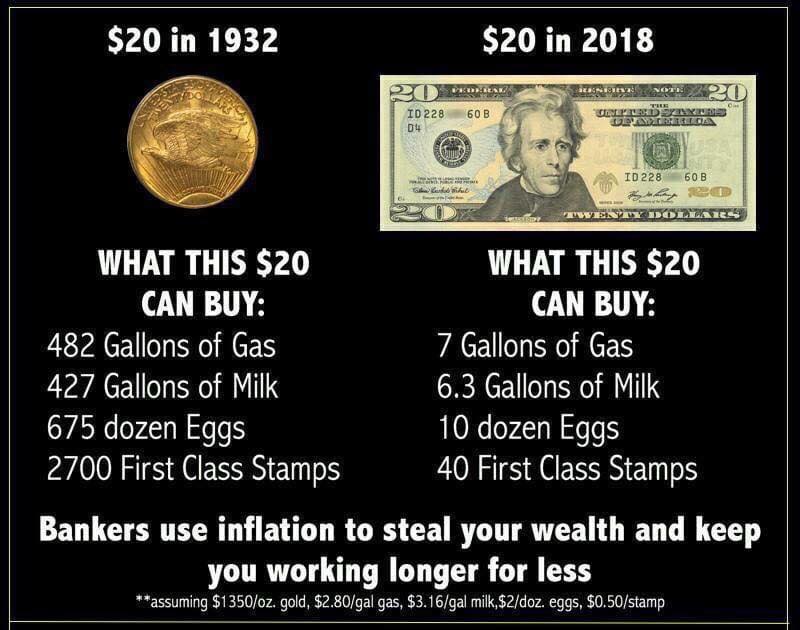If destroyed will you give me yours given that destroyed things are usually worthless???
Heh heh. No. I don't even know you. And, really, you're starting to get annoying.
You said our currency has been destroyed by the Fed. Do you get annoyed when you learn you were wrong???
DO YOU?
How much value has the US dollar lost since 1913?
1913 is when the Federal Reserve, which is actually a privately-owned central bank, took over the
US banking system. As you can see, it's been pretty
much downhill
since the Fed took over. In fact, the
dollar has lost over 96% of its
value.
That means today's dollar would be worth less than 4 cents back in 1913.
~S~
This is true. However, this ignores some simple facts. Namely that even during the gold standard, there was in fact inflation.
There are a number of resources that validate this data.
The Gold Standard and the Myth of Price Stability
This should do.
While over the longer term, there is some indication that inflation remained lower during the gold standard, that's only the average inflation over periods of time.
In the short run, the markets and the currency, where very unstable, with wide fluctuations.
Now the point is, inflation is going to happen, whether we have a commodity backed currency or not.
Additionally, one of the problems that led to us moving off the gold standard, was the fact that we had already printed more dollars, than there was gold.
People seem to have this rather strange concept that if we have a gold standard, that this means the government will only print enough dollar bills, to fit how much commodity they have.
But this is assumes that politicians are going to abide by the rules of monetary policy. But if politicians were going to follow the rules of monetary policy, then why not follow the rules of the existing system?
In other words, if we can't trust them to follow good policy as it exists today, then why would we assume having new policies like a gold standard, would magically make the politicians follow those polices?
And lastly, having a gold standard, places us in a position for other countries to destroy our economy externally.
Gold Standard - Econlib
Most other countries on the gold standard—notably France and Belgium—did not follow the rules of the game. They never allowed interest rates to rise enough to decrease the domestic price level. Also, many countries frequently broke the rules by “sterilization”—shielding the domestic money supply from external disequilibrium by buying or selling domestic securities. If, for example, France’s central bank wished to prevent an inflow of gold from increasing the nation’s money supply, it would sell securities for gold, thus reducing the amount of gold circulating.
Now at first, you may not grasp the implication of this historical fact from post World War 1.
Under the gold standard, countries would exchange with each other. That exchange would result in gold being shifted around.
So France buys something from the US, and the US can use those bills to either buy something from France, or exchange it for gold.
The US buys something from France, and the French can use those bills to buy something from the US, or exchange it for gold.
Now as each country gets gold from the other countries, they would usually then issue more bills or currency, for the value of the gold they received.
There was just one problem. Countries like France, were choosing to not issue bills for the gold they got. So gold was flowing into France, but because there was no currency issued for that gold, the gold was not flowing out of France.
Countries like the US, were finding over time that their stock of gold was dwindling.
One difference is that France was not intending to destroy the economy of countries around them. They simply wanted to get a pile of gold to shore of up their government after WW1.
Now imagine the same situation today. China has trillions of dollars worth of T-bills. If we introduced a gold-backed currency, China could very easily sell off those T-Bills, and use the currency to exchange for gold.
In a matter of a months, they could easily drain all the gold out of our government, and leave our economy in ruins.
Status Report of U.S. Government Gold Reserve - Current Report
If this is accurate, we only have $388 Billion in gold. The US government has $23 Trillion in debt. That gold would be gone in a matter of hours even, if we instituted a gold based system.

